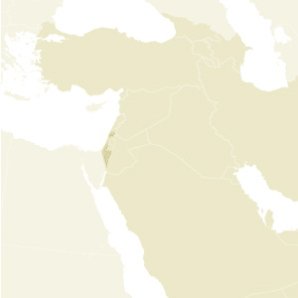
The tension between Tel-Aviv and Washington is not letting up; at stake is who is in charge of the Zionist movement and who determines their common strategy in the Middle East.
To assert his leadership in the region, the Netanyahu government - during Vice-President Biden’s recent visit - announced its intention to carry on with the de facto annexation of East Jerusalem by building 1 600 new homes earmarked for Israeli Jews only. Washington responded to the affront, on the one hand, by showing its annoyance - Joe Biden turned up one hour late at a dinner in his honour - and, on the other hand, by making three demands.
Reportedly, in a letter signed by Secretary of State Clinton, the Obama administration requested:
– the annulment of the decision to build the new housing;
– a gesture of good will towards the Palestinians, such as the release of prisoners;
– finally, a declaration of commitment to tackle the key issues with Special Envoy George Mitchell, whose patience is running out.
The letter went unanswered and Mr. Mitchell decided to postpone his visit indefinitely.
In a swift reaction, the pro-Israel lobby in the United States began mounting pressure on the Obama Administration. Representative Eric Cantor, Republican Whip at the House of Representatives, and Senator Kirsten Gillibrand, Hillary Clinton’s successor for the New York seat, turned up the heat on Chief of Staff Rahm Emmanuel over the phone. Meanwhile, Representatives Mark Kirk (R) and Chris Carney (D) came down on State Secretary Clinton. She will have to provide an explanation on March 22 before the Congress of the l’American Israel Public Affairs Committee (AIPAC).
The arguments raised by the pro-Israel members of Congress center around the need to make concessions to Tel-Aviv in order to ensure its backing vis-à-vis the Iranian threat.
However, the Military Joint Chiefs of Staff has observed that the threat to the U.S. troops stationed in Iraq and Afghanistan is not being posed by Iran, but by Israel’s continuous provocations against the Arab-Muslim world.
In the final analysis, the tension between Israel and the United States could strengthen the power of the military in both countries to the detriment of the political sector.



























Stay In Touch
Follow us on social networks
Subscribe to weekly newsletter